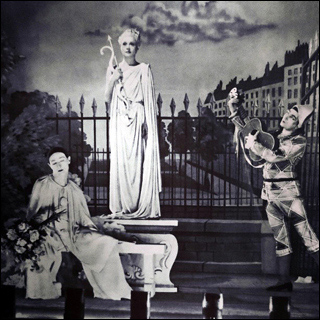Course Description
This course covers the history and aesthetics of French cinema from the advent of sound to present-day. It treats films in the context of technical processes, the art of narration, directorial style, role of the scriptwriter, the development of schools and movements, the impact of political events and ideologies, and …
This course covers the history and aesthetics of French cinema from the advent of sound to present-day. It treats films in the context of technical processes, the art of narration, directorial style, role of the scriptwriter, the development of schools and movements, the impact of political events and ideologies, and the relation between French and other national cinemas.
Taught in English, the films are screened with English subtitles. Students may complete written assignments in French.
Course Info
Instructor
Departments
Learning Resource Types











